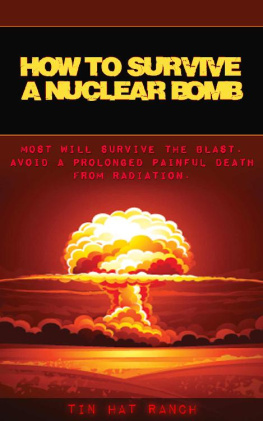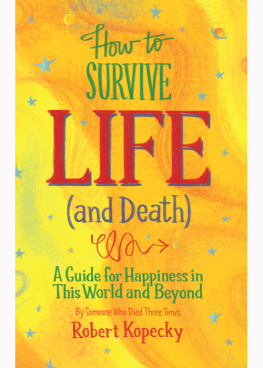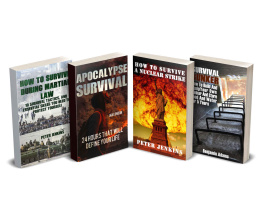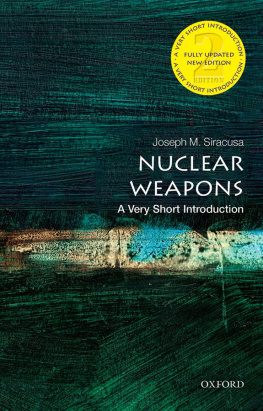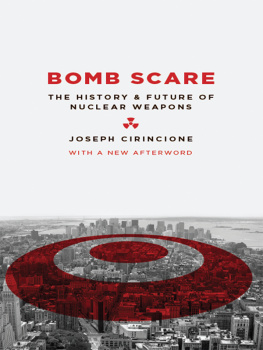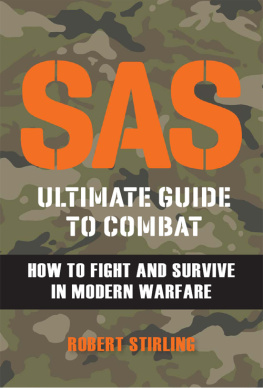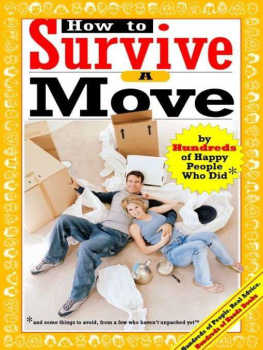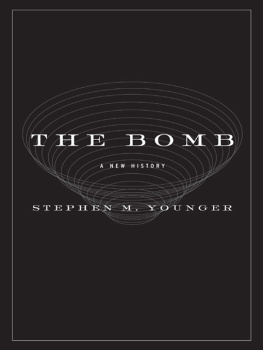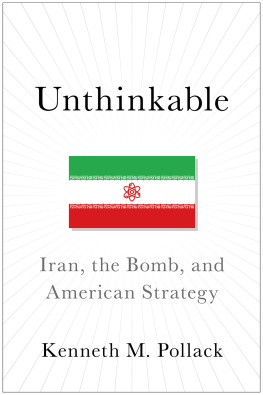Tin Hat Ranch - How to Survive a Nuclear Bomb: Most Will Survive the Blast. Avoid a Prolonged Painful Death from Radiation.
Here you can read online Tin Hat Ranch - How to Survive a Nuclear Bomb: Most Will Survive the Blast. Avoid a Prolonged Painful Death from Radiation. full text of the book (entire story) in english for free. Download pdf and epub, get meaning, cover and reviews about this ebook. year: 2014, publisher: Tin Hat Ranch, Inc., genre: Romance novel. Description of the work, (preface) as well as reviews are available. Best literature library LitArk.com created for fans of good reading and offers a wide selection of genres:
Romance novel
Science fiction
Adventure
Detective
Science
History
Home and family
Prose
Art
Politics
Computer
Non-fiction
Religion
Business
Children
Humor
Choose a favorite category and find really read worthwhile books. Enjoy immersion in the world of imagination, feel the emotions of the characters or learn something new for yourself, make an fascinating discovery.
- Book:How to Survive a Nuclear Bomb: Most Will Survive the Blast. Avoid a Prolonged Painful Death from Radiation.
- Author:
- Publisher:Tin Hat Ranch, Inc.
- Genre:
- Year:2014
- Rating:3 / 5
- Favourites:Add to favourites
- Your mark:
- 60
- 1
- 2
- 3
- 4
- 5
How to Survive a Nuclear Bomb: Most Will Survive the Blast. Avoid a Prolonged Painful Death from Radiation.: summary, description and annotation
We offer to read an annotation, description, summary or preface (depends on what the author of the book "How to Survive a Nuclear Bomb: Most Will Survive the Blast. Avoid a Prolonged Painful Death from Radiation." wrote himself). If you haven't found the necessary information about the book — write in the comments, we will try to find it.
Tin Hat Ranch: author's other books
Who wrote How to Survive a Nuclear Bomb: Most Will Survive the Blast. Avoid a Prolonged Painful Death from Radiation.? Find out the surname, the name of the author of the book and a list of all author's works by series.
How to Survive a Nuclear Bomb: Most Will Survive the Blast. Avoid a Prolonged Painful Death from Radiation. — read online for free the complete book (whole text) full work
Below is the text of the book, divided by pages. System saving the place of the last page read, allows you to conveniently read the book "How to Survive a Nuclear Bomb: Most Will Survive the Blast. Avoid a Prolonged Painful Death from Radiation." online for free, without having to search again every time where you left off. Put a bookmark, and you can go to the page where you finished reading at any time.
Font size:
Interval:
Bookmark:
Copyright 2014 Tin Hat Ranch, Inc.
No part of this book may be reproduced or transmitted in any form or by any means, elec tronic or mechanical, including scanning, photocopying, recording, or by any information storage and retrieval system, without permission in writing from the publisher.
Contents
Why would anyone want to survive a nuclear bomb?
This is the first reaction most people have to the title How to Survive a Nuclear Bomb. In reality nobody wants to survive a nuclear bomb. They dont want to ever deal with one in the first place. The problem is the situation is completely out of our control. If you ever have the misfortune of being near a nuclear bomb when one detonates you will be thrust into a world with two outcomes. Either you will be vaporized, blown apart, gravely injured, incapacitated by prompt radiation OR you will be unaffected by the bombs immediate effects. Many hundreds of thousands or even millions of people could die in the first minutes of a nuclear event. For most, they are dead before they can suffer. It is the folks that witness the bomb yet find themselves alive and uneducated that will die a most horrible death from Acute Radiation Syndrome.
While you may not want to survive a nuclear bomb, you do not want to wave a white flag and die from the effects of radiation. Your alternative to learning to survive is vomiting, heavy diarrhea, headache, weakness, hemorrhaging, fever, dizziness and confusion. These are just the initial symptoms of Acute Radiation Syndrome. Thus begins a slow march towards death. In lots of cases people will seem to recover for a period after the initial symptoms. Extreme medical intervention, such as bone marrow transplants, could save the lives of a small percentage of people receiving a moderate dose. But many thousands or even millions could be suffering the same fate, medical treatment wont be available. For these folks, symptoms will return; infections, gangrene, intestinal paralysis, their bodies die from the inside out. Unfortunately, in these cases the human body is quite resilient. It fights to live. This prolongs the suffering as people will live under these conditions, slowly dying, for a few weeks to a few months.
Fortunately this fate is avoidable. With a bit of knowledge, and a few simple steps, you can vastly increase the probability that you wont suffer this fate. Again, surviving a nuclear bomb is not about wanting to survive. It is about you and your loved ones avoiding a horrible demise.
While the nuclear arsenals of Superpowers have been dwindling for decades, proliferation amongst less stable countries grows by the hour. Nuclear war used to be an all or nothing endeavor, now we havent a clue where, when, or if one might explode. The methods in this book combine knowledge and ingenuity versus monetary expenditure to overcome the issue at hand. It will help you to understand how the radiation of a nuclear bomb can kill you, allowing you to improvise in almost any situation. When a bomb detonates and you find yourself alive the answers to the questions in the minds of the people around you will already be in your head.
Dont listen to the modern news media. Dont buy into the myth that a nuclear bomb is not survivable. It can only lead to an avoidable agonizing death. Read this book instead.
When a nuclear weapon explodes a critical amount of nuclear materials (Uranium or Plutonium) are brought together very quickly by a conventional explosive. These nuclear materials are unstable and they release neutrons which hit other atoms which in turn release more neutrons. As these neutrons are released, large amounts of energy are also released. If you compress these materials in just the right fashion, with the conventional explosion, this release becomes a chain reaction of nuclear proportions. Countless neutrons are released along with massive amounts of energy across the electromagnetic spectrum; light, heat, X-rays, gamma rays. So much energy is released that it overwhelms the surroundings, vaporizing everything in its path. In nanoseconds you have a massive expanding fireball.
To an observer , somewhat removed from the event, the first indication something is wrong will be a bright flash, brighter than the sun. This initial flash is the first indication that something is wrong but it is also the first opportunity to glean critical information about the situation. By flash we mean an intense period of light.
When this initial flash occurs it will be unmistakable, your first reaction will be to look towards it but you must resist. At this point you dont know the power of the weapon which is exploding. It could blind you if you are close enough. On a clear day a bomb with sufficient yield can give a person third degree burns from dozens of miles, even if the blast never reaches you. Your first action should be to take cover behind the nearest solid object.
Your second action should be to note the duration of the pulse, either start counting or look at your watch. This might sound like a crazy suggestion but its not. Many may say that if your eyes are closed or averted from the blast how can you note the duration of the initial pulse. The truth is it will be unmistakable. It will illuminate everything around you, the light will permeate your closed eyelids, it will find its way under door frames and around closed curtains into interior rooms. Even if you are running down to a basement to take cover, you will see it.
The importance of noting the duration of the initial pulse is threefold. First, it will give you a good approximation as to the bombs yield or power, second you can make an educated guess as to the origin of the bomb, third you can deduce chances that more bombs are on the way.
As a bombs yield increases so does the duration of the initial flash. The bigger the weapon the more the chance of deadly fallout is a general rule. A flash with a duration of less than 3 seconds would indicate a bomb with a yield similar to those dropped on Hiroshima and Nagasaki. Not many weapons in the arsenals of todays first line nuclear powers are this small. Chances are the weapon originated from just a few sources. As of this writing in 2014, North Korea, India, and Pakistan are the only sources of weapons of this size. Iran is also getting close to a weapon. The other possibility, remote is it would seem, would be a terrorist weapon. Delivery systems aside, if a weapon of this smaller magnitude were to detonate you can almost be certain that it will be a single occurrence. The entities with these weapons have limited numbers and limited methods of delivering them. Although these weapons might be small in relative terms they can be the deadliest. If a smaller country or terrorist group were to use such a weapon the intent would be to cause as much death and suffering as possible. Exploding even a smaller bomb on the ground can eventually kill far more people than a larger bomb exploding in the air. Whereas fallout is very limited in an airburst it will be very significant if the bomb detonated underground in a parking garage (more on this later).
If the duration of the flash is a little longer, sa y closer to 10 seconds, then chances are the big dogs are involved. Most yields of weapons in the arsenals of countries like the United States, Russia, the UK, France, and China fall in the hundreds of kilotons. If the indication is a weapon in the hundreds of kilotons expect more detonations in the area. There arent many scenarios where an exchange of superpowers would be limited to a single weapon. If two Superpowers ever face off in a nuclear shooting war their primary objectives will be to destroy their adversarys ability to strike back. Whomever shoots first will target the other nations Inter-Continental Ballistic Missiles, nuclear submarine bases, and the airfields that house nuclear bombers. This doesnt happen without a massive launch. Cities will be last on the list of targets. The good news is treaties like SALT I, SALT II, and START have greatly reduced the number of warheads and brought countries like the United States and Russia closer to parity. All things being equal, warheads are targeted at warheads, not cities. While even a warhead versus warhead exchange would be devastating it becomes increasingly unlikely to happen in the first place. The bad news is recent geopolitical events may begin to unravel this parity.
Font size:
Interval:
Bookmark:
Similar books «How to Survive a Nuclear Bomb: Most Will Survive the Blast. Avoid a Prolonged Painful Death from Radiation.»
Look at similar books to How to Survive a Nuclear Bomb: Most Will Survive the Blast. Avoid a Prolonged Painful Death from Radiation.. We have selected literature similar in name and meaning in the hope of providing readers with more options to find new, interesting, not yet read works.
Discussion, reviews of the book How to Survive a Nuclear Bomb: Most Will Survive the Blast. Avoid a Prolonged Painful Death from Radiation. and just readers' own opinions. Leave your comments, write what you think about the work, its meaning or the main characters. Specify what exactly you liked and what you didn't like, and why you think so.

